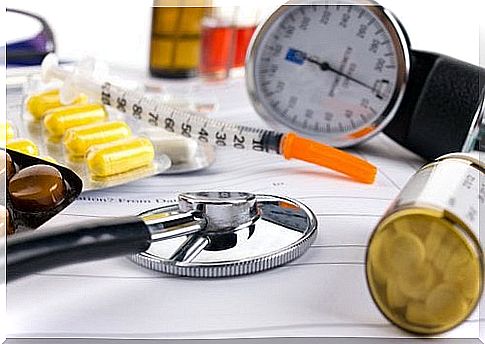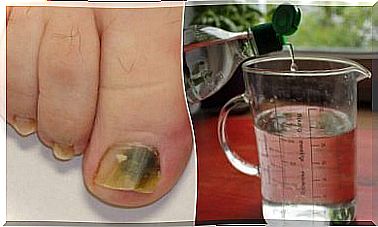6 Things You Should Know About Diabetes

Many people worry about this disease, while others never think about it at all. “Scientia potentia est” or knowledge is power. That’s why today we want to talk about the things you need to know about diabetes.
Diabetes is a metabolic pathology that occurs due to uncontrolled blood sugar levels. These blood sugar levels can rise due to insulin resistance or because your body is not producing enough of the hormone.
Because diabetes has no obvious symptoms in its early stages, some see it as a great danger and have been referred to as the ‘silent killer’. Most worrisome is that it interferes with other systems in your body.
Unfortunately, this disease opens the door to cardiovascular disease, kidney disease, and neurological disease.
That’s why doctors recommend that you inform yourself about this, by reading up on the symptoms and how to prevent it.
6 things you should know about diabetes
1. What Causes Diabetes?
First, you should know about diabetes that there are many possible causes of this disease. However, it mainly occurs when your pancreas doesn’t produce enough insulin or your body doesn’t use it efficiently.
These situations can be due to genetic or environmental factors, as well as a diet rich in carbohydrates and refined sugar.
2. What different types of this disease are there?
It is important to know about diabetes that there are three types of diabetes:
- Type 1: This is due to too little or no production of insulin, making daily injections necessary. This type is also known as insulin-dependent diabetes . Because it is so complicated, the exact cause is unclear.
- Type 2: This is the most common. Normally this is related to other metabolic problems, such as being overweight. With this type, your body has trouble using the insulin it produces. This has an effect on the processes that regulate your blood sugar.
- Gestational diabetes : This is because the amount of glucose in your blood rises when you are pregnant. Fortunately, this is more manageable than type 2 diabetes.
3. What are the symptoms?

While you may not see any real signs at first, there are a few symptoms that can alert you.
Here are a few:
- Having to urinate more often
- Constant hunger and thirst
- extreme fatigue
- Skin wounds that do not heal well
- Blurry sight
- Dizziness
- Sudden Weight Loss
- mood swings
- stomach problems
- Regular inflammation
- Tingling sensation in your muscles
- dental problems
4. What are the possible complications?
Unfortunately, glucose is very important for many processes in your body. When the level is not balanced, it can cause problems with your health.
First, it is a silent disease and does not seem to cause any harm to your body. When it gets more severe, it can cause permanent liver and cardiovascular damage.
So here are some key complications:
- Complete renal failure
- Nervous System Problems
- diabetic foot
- Cardiovascular Problems
- Stroke
- Blood clots
- Inflammation
5. How is the diagnosis made?
You can get a diagnosis during your regular medical checkup. But if you get any suspicious symptoms, make sure you get them looked at right away.
It is tested through a blood sugar test, which is done after fasting.
You can also get a diagnosis in another way, namely through a glucose tolerance test. You have to take 75 grams of sugar and then monitor your blood sugar levels for two hours. Immediately after ingestion, results should be less than 100 mg/dL. Two hours later, it should not exceed 140 mg/dL.
6. How is it treated?
Treatment for type 1 diabetes involves giving the body what it doesn’t make itself: insulin. Daily injections are essential thus treating anyone with diabetes of this type. They cannot live without these injections.
For type 2 diabetes, there are alternative treatments and medications that can control blood sugar levels.
We don’t want to forget to mention how important it is to have a healthy lifestyle. Ultimately, your diet and physical activity are key to controlling diabetes.
Get regular checkups, watch your weight and actively participate in treatment to make sure diabetes doesn’t win.
See your doctor if you suspect you have diabetes and ask about the best treatment methods to maintain a healthy lifestyle.









